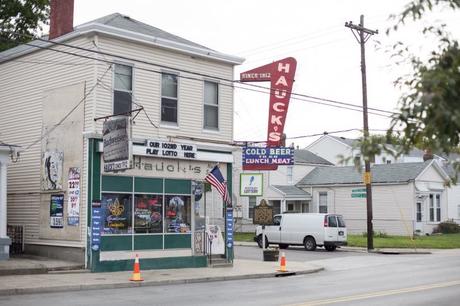
For this post I want to talk about an issue that hits close to home for me. It deals with a concept some may not know the definition of or have heard of but don’t know what exactly it entails. I’m talking about gentrification.
The exact definition of gentrification from Brittanica Academic is:
the process of renewal and rebuilding accompanied by a wave of middle- or upper-class people moving into the area and displacing poorer residents
And what’s further:
The Centers for Disease Control and Prevention report Health Effects of Gentrification defines the real estate concept of gentrification as “the transformation of neighborhoods from low value to high value. This change has the potential to cause displacement of long-time residents and businesses … when long-time or original neighborhood residents move from a gentrified area because of higher rents, mortgages, and property taxes. Gentrification is a housing, economic, and health issue that affects a community’s history and culture and reduces social capital. It often shifts a neighborhood’s characteristics, e.g., racial-ethnic composition and household income, by adding new stores and resources in previously run-down neighborhoods.
The possible negative effects of gentrification are, but not limited to:
Displacement through rent/price increases
Loss of affordable housing
Commercial/industrial displacement
Unsustainable property prices
Displacement and housing demand pressures on surrounding poor areas
Community resentment and conflict
Homelessness
Secondary psychological costs of displacement
Increased cost and charges to local services
Loss of social diversity (from socially disparate to rich ghettos)
Under occupancy and population loss to gentrified area
Loretta Lees, Tom Slater, and Elvin Wyly, Gentrification Reader, p. 196. © 2008 Routledge.; Rowland Atkinson and Gary Bridge, eds., Gentrification in a Global Context: the New Urban Colonialism, p. 5. © 2005 Routledge.
This an important concept in terms of income-inequality rights. Big investors may come to a “ran-down” neighborhood, start some huge new development to serve bourgeois interests, and then drive people out of their homes along with other negative impacts. And it hits close to home for me because it is affecting a special place for myself right here in Louisville, KY. Let me explain:
There is an area in Louisville called Germantown/Schnitzelburg (G/S) which is composed of a few adjoining neighborhoods where an enclave of German Catholics moved into soon after arriving from Europe. And this is where my family is from and where I spent a lot of my young adult/university days. But G/S shares a border with the trendy/hipster section of town, and they are beginning to run out of real estate. So, in response, they are currently gentrifying G/S and bringing all the negative effects in with it. They are running out good, hardworking people from their family homes by increasing rent/tax prices and renovating old warehouses into apartment buildings and transforming little family bars into hipster hangouts.
The repertoire of the capitalist/bourgeois machine effects can hit the people in many ways. Gentrification is one of them.

